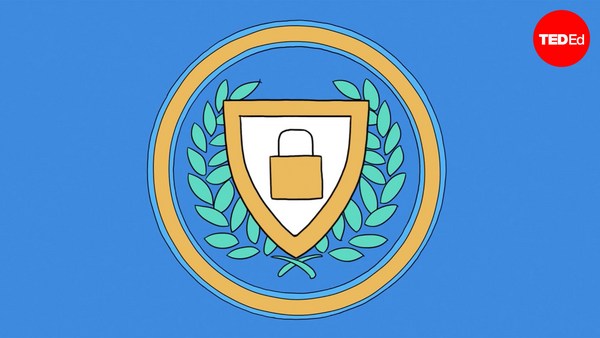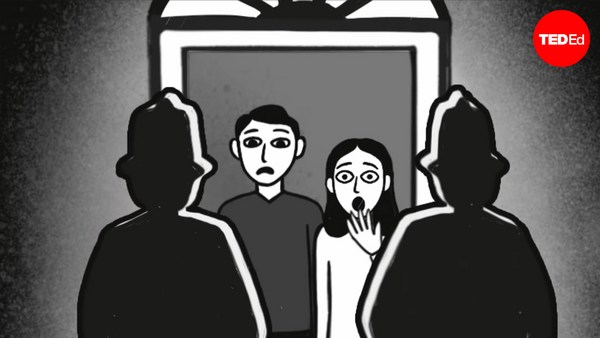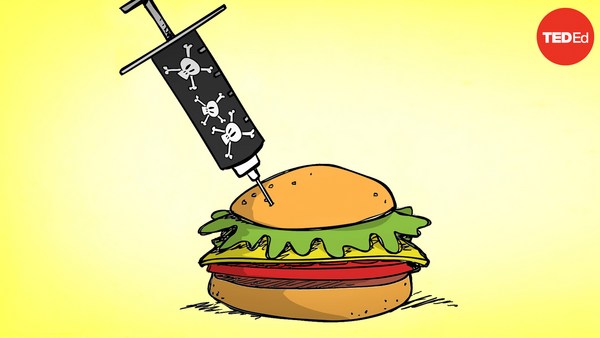For decades, Yvonne and Zaina have been happily married and co-leading a non-profit developing a cure for a life-threatening disease. This work is largely funded by profits from a successful company Yvonne founded. But one day the couple is involved in a tragic car accident, and Yvonne is rushed to the hospital. The doctors can only do so much, and on her deathbed, Yvonne asks Zaina to promise her two things. First, she wants Zaina to continue using the company’s funds to support their non-profit and its research. Second, Yvonne recalls a conversation from years earlier where the two pledged that no matter what the future held, they would never remarry. And in her final moments, Yvonne asks Zaina to recommit that pledge. Holding her wife closely, Zaina promises to uphold Yvonne’s wishes.
In the following decade, Zaina keeps these promises. But now several large pharmaceutical companies are likely to cure this disease at any moment. Additionally, after years of mourning, Zaina has finally entered a new relationship. She's happy with her partner, and while she's not sure if she's even ready to remarry, she feels the weight of her promise. Given these new circumstances, should Zaina continue keeping these promises?
Philosophy has a lot to say about the value of keeping promises. For example, philosopher Tim Scanlon argues that promising is essentially about creating interpersonal expectations. Making a promise assures another person that we’ll act in a certain way which they can incorporate into their plans. But since Yvonne can no longer make plans, it seems like Zaina’s decision only affects herself, right?
Maybe not. Philosophers like John Rawls and David Hume argue that keeping promises isn’t as much about protecting the individuals involved as preserving the societal value of promising itself. Hume sees promises as tools for signaling trustworthiness, so breaking them makes the practice less reliable overall. Similarly, Rawls thinks keeping promises is a matter of fairness. If you've benefited from this social practice, then justice requires you to uphold your end of the bargain. But do these social concerns apply to promises we’ve made to the dead? And even if they do, shouldn’t Zaina’s decision on this personal matter focus more on Yvonne than on what Zaina might abstractly owe society?
These questions don't have clear answers, and they might not even be relevant to this case. Most philosophers agree that promises obtained through coercion or deceit aren’t binding. And one could argue that Zaina’s promises were made under duress. Who could say “no” to their dying spouse? On the other hand, Yvonne’s deathbed wishes were neither threatening nor particularly unreasonable given their history.
If we assume both promises are legitimate, we might think about Zaina’s dilemma through the lens of self-determination. English philosopher John Locke believes people have a natural right to self-ownership that limits how much other people can determine what we do. And his followers might say that making a promise doesn’t overrule this natural right, especially about something as central to Zaina’s self-determination as the choice to remarry.
Then again, what about Yvonne's rights? Did they all disappear when she died, or does Yvonne still have authority over her legacy, her relationship, or especially her money? Many countries have legal codes protecting the assets of the dead, and money is a powerful tool for pursuing self-determination. So at a minimum, perhaps Zaina should respect Yvonne’s right to determine how her money will be spent. At the same time, Zaina feels strongly that Yvonne would want those funds to go to where the need is greatest, like research into other less understood diseases. And since the facts have changed, maybe Zaina is justified in updating Yvonne’s wishes.
But perhaps all this talk of ownership, authority, and self-determination is too impersonal. Feminist philosopher Natalie Stoljar and Catriona Mackenzie argue that we construct our identities in part through societal relationships, meaning that Zaina’s identity and values are entangled with her marriage to Yvonne. So perhaps honoring that marriage and the promises made within it could be a way for Zaina to affirm her own identity.
So, given all these considerations, what would you do in Zaina’s position?


